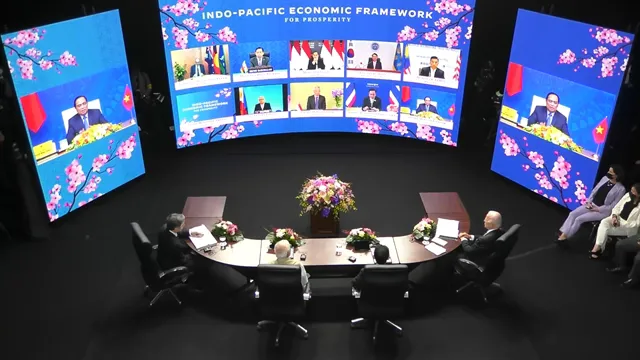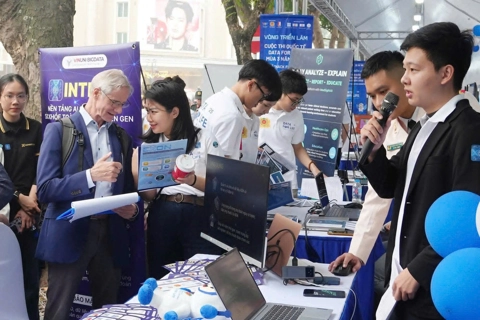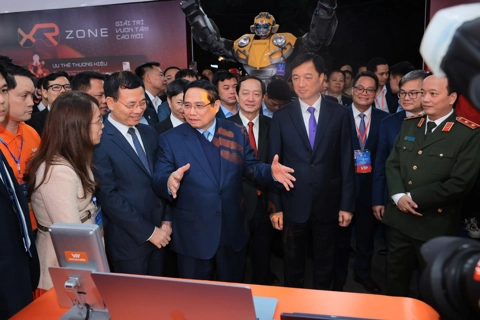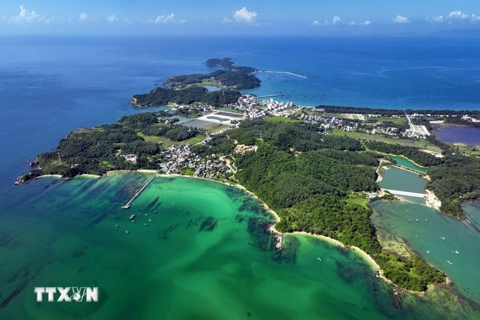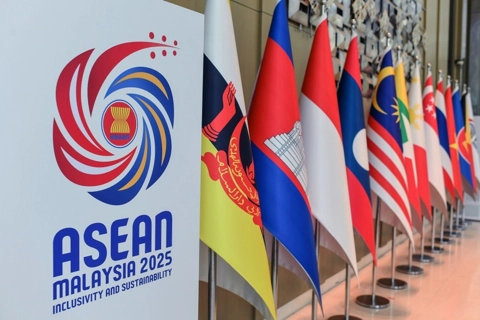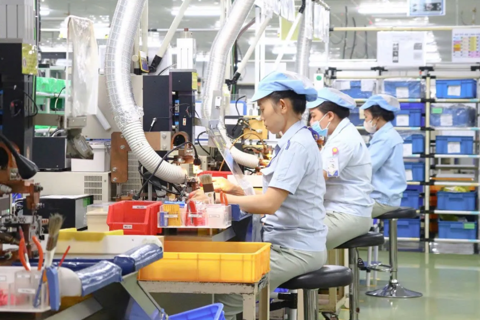IPEF should treasure openness, inclusiveness and transparency: foreign ministry
The regional framework should be in line with international laws and ASEAN Centrality.
Vietnam has highlighted the role of international economic initiatives when talking about the Indo-Pacific Economic Framework (IPEF) which was launched by the US three days ago.
“Vietnam has joined a number of international economic initiatives that help make the most of domestic and foreign resources, serving the country’s development,” Spokesperson Le Thi Thu Hang of the Ministry of Foreign Affairs (MoFA) said today.
Hang made the statement at the press conference on May 26 when talking about Vietnam’s participation in the launch of IPEF through a speech delivered by Prime Minister Pham Minh Chinh.
Chinh said the launch of IPEF will kickstart a serious discussion in exchange of ideas towards addressing critical regional and global issues together, issues that no one can address on their own like ones on a global scope – supply chains diversification and resilience, technological innovation, digital transformation, e-commerce promotion, climate change response, achieving net-zero by 2050, green growth, taxation issues and anti-corruption among many others.
He stressed the need for economic connections towards sustainability and resiliency for the framework consisting of Australia, Brunei, India, Indonesia, Japan, Republic of Korea, Malaysia, New Zealand, the Philippines, Singapore, Thailand, and Vietnam, accounting for 40% of the global GDP.
| Overview of the launch of the Indo-Pacific Economic Framework (IPEF) held on May 23. Photo: VNA |
The spokesperson said Vietnam, together with ASEAN member states and related partners, will discuss to clarify IPEF content that focuses on four pillars: Trade; Supply Chains; Clean Energy, Decarbonization, and Infrastructure; and Tax and Anti-Corruption to deliver a positive, efficient, and workable economic agenda for the region and each country.
This is towards a framework of cooperation, bringing practical benefits to the people, for peace, stability, cooperation, development, and prosperity for the region and the whole world.
“The IPEF should be based on principles of openness, inclusiveness, and transparency, in line with international law, ASEAN Centrality, and complementing existing economic links,” Hang noted.
The Indo-Pacific Economic Framework is a new kind of trade agreement that the US is seeking to push among countries of the region. Unlike a traditional trade agreement, the IPEF will be an executive agreement (or agreements) not requiring congressional approval.
According to the joint statement released at the launch, the countries agreed to “look forward to jointly creating conducive environments to boost flows of commerce, trade, and investments amongst our economies, and to enhancing standards and access to opportunities for our workers, companies, and peoples in our combined markets.”

